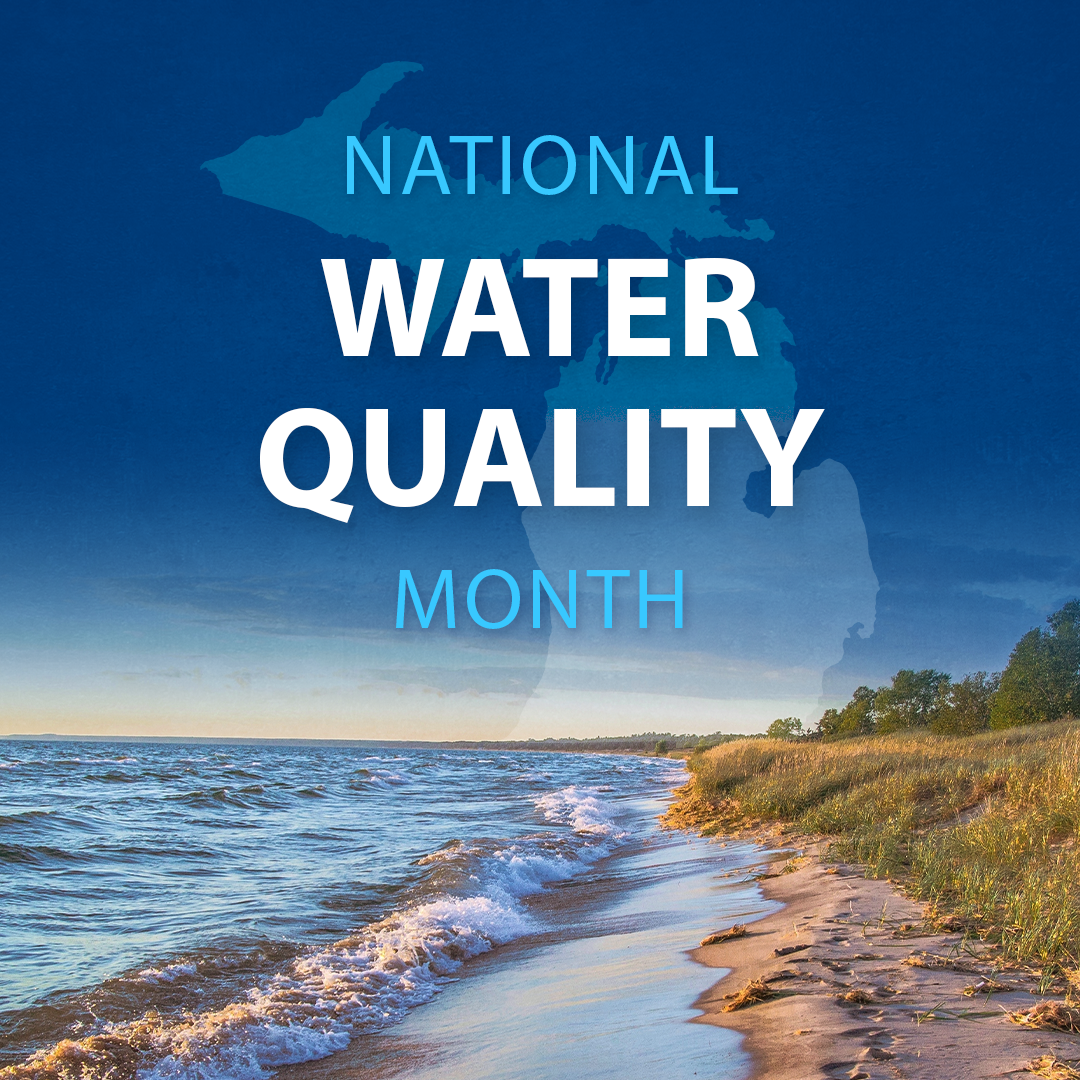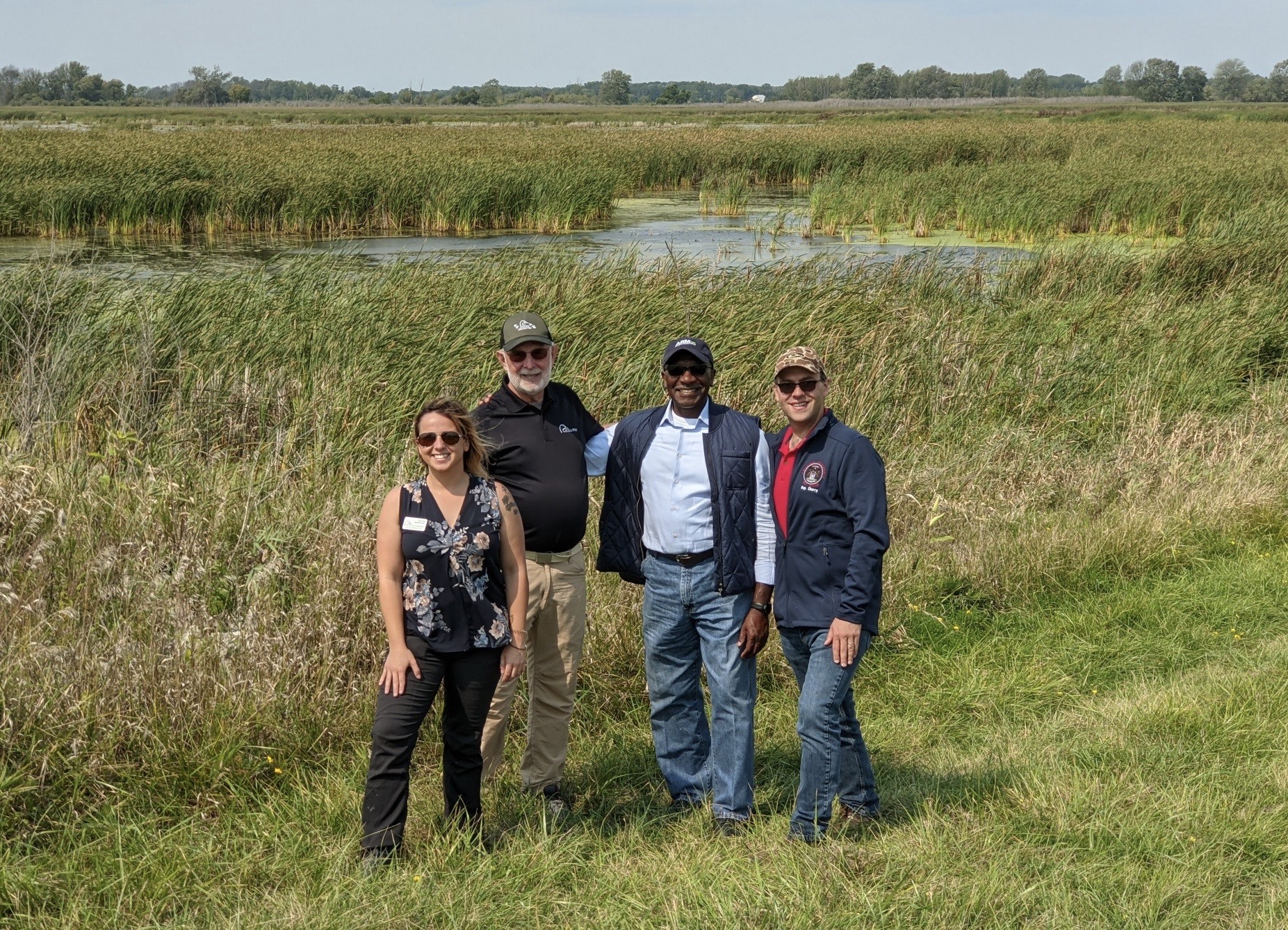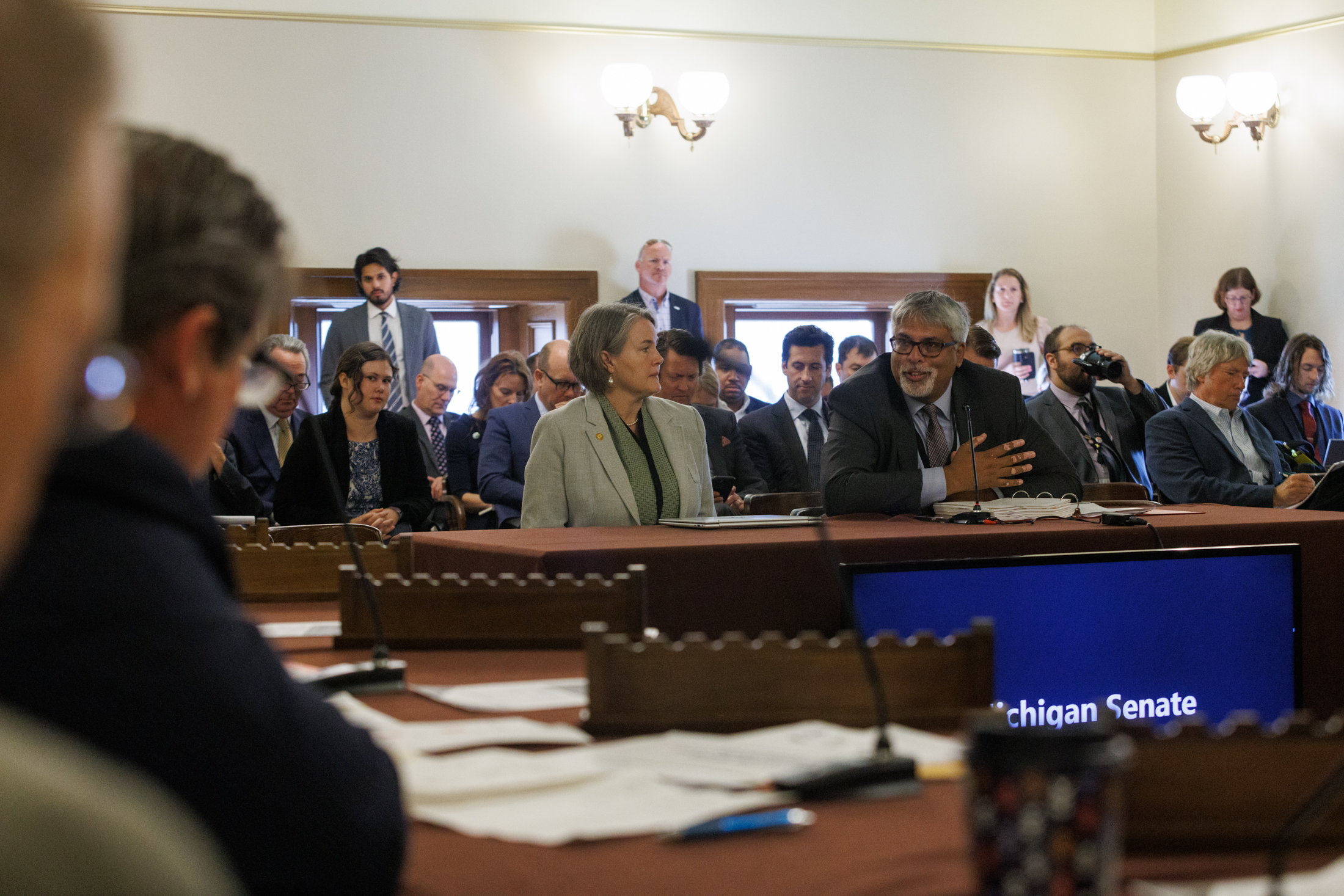During National Water Quality Month, Michigan Senate Democrats reaffirm their commitment to protecting the state’s Great Lakes and other waterbodies
As Michiganders, our abundance of fresh water is a vital part of our identity. We’re known across the country and world as the Great Lakes State — the source of 20% of Earth’s total fresh water. Our more than 3,000 miles of shoreline is proudly featured on our state quarter and serves as the inspiration behind our state motto and nickname.

The majesty of Michigan’s Great Lakes captured from NASA’s Terra satellite.
Our lakes and various waterways are also integral to the health of Michigan’s economy. The Great Lakes shipping industry generates more than $36 billion in economic activity and supports more than 664,000 jobs. A recent report also found that Lake St. Clair brings $1.6 billion to southeast Michigan through businesses, recreational opportunities and more than 18,000 jobs.
Furthermore, access to clean water helps protect Michiganders’ health and well-being. Residents across the state depend on their communities to have quality water infrastructure to prevent sewage, PFAS and other substances from seeping into water sources and contaminating their drinking water.

During National Water Quality Month, Michigan Senate Democrats reaffirm their commitment to protecting the state’s lakes, rivers and waterways. Only eight months into the 2023-2026 term, the Senate Majority for the People is wasting no time and taking action to ensure residents have access to clean drinking water, invest in water infrastructure, combat rising rates of pollution and more.
Sen. Cherry Works to Implement Water Filtration System Plan

Sen. John Cherry and Rep. Amos O’Neal join members of Michigan Ducks Unlimited at the Shiawassee National Wildlife Refuge to discuss the organization’s work to improve habitats and water quality.
Representing Flint and seeing the devastating effects of the area’s water crisis, Sen. John Cherry (D-Flint) knows how critical clean water is for families and children. As the Majority Vice Chair of the Senate Natural Resources and Agriculture Committee, Cherry is tirelessly fighting to combat lead poisoning and ensure all Michiganders — no matter their race or socioeconomic background — have access to uncontaminated drinking water. His bill, Senate Bill 31, would expand access to lead testing and help parents identify early on if their children have been exposed to lead. Additionally, Cherry introduced Senate Bill 89 to make sure students have access to clean drinking water at school. Along with Senate Bill 88 introduced by Sen. Sylvia Santana (D-Detroit), the legislation would require Michigan schools and childcare centers to implement a drinking water management plan, install filtered faucets and bottle-filling stations, and test the filtered water to ensure proper installation.
“By getting water filters in schools and childcare centers, we can prevent our children from experiencing the detrimental effects of lead poisoning,” said Cherry, speaking on the passage of the Filter First bill package. “This legislation fights an issue we are actively facing across Michigan by creating an effective solution to lead poisoning in schools and daycares.”
Sen. Hertel Looks Forward to Using Budget Wins Towards Water Infrastructure Projects

On the left, Sen. Kevin Hertel speaks with Harsens Island residents about the construction of a new wastewater treatment plant. On the right, Hertel speaks with local leaders at the Chapaton Retention Basin in St. Clair Shores, where a new project to address combined sewer overflows is underway.
Representing communities along the shores of Lake St. Clair, Sen. Kevin Hertel (D-St. Clair Shores) sees protecting the state’s natural resources as a great responsibility. Throughout his time in office, Hertel has been a staunch advocate of policies and budget items that prioritize the quality of our water infrastructure. In the 2024 state budget, Hertel fought for the inclusion of over $600 million for water infrastructure projects across the state to replace lead service lines, rebuild sewers and more. Among these projects was $2 million for Harsens Island, a St. Clair County community located in the middle of the largest freshwater delta in North America, to construct a wastewater treatment plant using next-generation technology that will help protect waterways and improve residents’ quality of life.
“Water is essential to our way of life as Michiganders — it’s what connects each and every one of us,” said Sen. Hertel. “As legislators, we have a responsibility to invest in our communities to ensure they have the water infrastructure necessary to protect our natural resources and deliver clean drinking water to residents.”
Sen. McCann Supports Community in Preserving State Natural Resources

Sen. Sean McCann joins representatives from the Kalamazoo River Alliance in February 2022 to testify in support of legislation to protect Michigan’s water and natural resources from damage by dam operators and others.
After having heard pleas from constituents calling for STS Hydropower to clean up the sediment they unleashed into the Kalamazoo River go unanswered, Sen. Sean McCann (D-Kalamazoo) stepped up and introduced legislation to hold them accountable for the damage to the river. Senate Bill 398 would strengthen the authority of the Michigan Department of Environment, Great Lakes, and Energy (EGLE) to protect Michigan’s water and natural resources from damage by dam operators and others. Additionally, McCann has championed legislation repealing Michigan’s “no stricter than federal” law to reinstate Michigan’s ability to go beyond minimum federal standards to defend our natural resources.
“Federal standards should be viewed as the floor, not the ceiling,” said Sen. McCann after the signing of Senate Bill 14. “Every state has unique needs, and the Great Lakes State is certainly no exception. Michigan has a history of going beyond federal standards, whether it’s to protect Lake Erie from algae blooms in the 1970s or address the Flint Water Crisis. This law will ensure our state can act swiftly with the best science available in the future.”
Sen. Shink and Sen. Singh Join Together to Champion Clean Water Efforts

Senate Majority Floor Leader Sam Singh joins Sen. Sue Shink to testify in support of legislation to protect Michigan’s natural resources.
Despite being known as the Great Lakes State, Michigan is the only state without a statewide septic code. To rectify the issue and address the state’s aging water infrastructure, Senate Majority Floor Leader Sam Singh (D-East Lansing) introduced Senate Bills 299 and 300 to improve water quality and public health outcomes by requiring septic tank systems to undergo inspection every five years and establishing a database on inspections and an inspector certification system.
“Clean water is a basic human right, but too many families have had to cope with lead-tainted water or water too expensive to afford,” said Sen. Singh. “It should be our top priority to provide fresh water to everyone — fresh water is a right, not a privilege.”

Sen. Sue Shink and volunteers participated in a river cleanup event on August 4, co-hosted by the Michigan League of Conservation Voters, to bring attention to the importance of clean water and wins in the 2024 state budget.
As Chair of the Senate Natural Resources and Agriculture Committee and the owner of a small family farm, Sen. Sue Shink (D-Northfield Twp.) understands how necessary clean water is to the overall health of our state’s environment and agricultural sector. To cut down the over 22 million pounds of plastic that ends up in the Great Lakes every year, Shink introduced Senate Bill 228 that would restore local control and aid community efforts to control litter and waste by allowing the implementation of plastic bag bans or any motion regulating the use or sale of plastic bags, or imposing any fee, charge, or tax on certain containers.
“Clean water is absolutely essential to the health of the people of Michigan and the health of our state,” said Sen. Shink during a river cleanup event at Bandemer Park in Ann Arbor. “With a state budget in place, now is the time to advance new laws for clean energy that reduce pollution in our air and water, while also addressing climate change.”
As state legislators return to Lansing for fall session, the Senate Democratic Majority looks forward to advancing legislation to strengthen environmental protections, so future generations of Michiganders can enjoy our state’s Great Lakes and unique natural resources for years to come.
Read more from the Michigan Senate Democrats at SenateDems.com/press.
